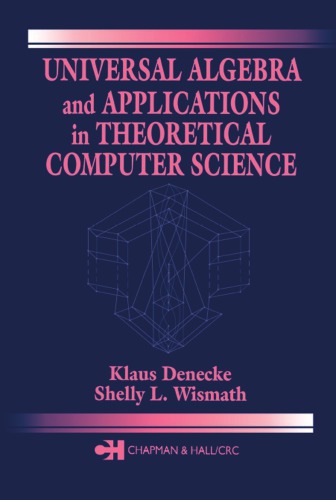

Most ebook files are in PDF format, so you can easily read them using various software such as Foxit Reader or directly on the Google Chrome browser.
Some ebook files are released by publishers in other formats such as .awz, .mobi, .epub, .fb2, etc. You may need to install specific software to read these formats on mobile/PC, such as Calibre.
Please read the tutorial at this link: https://ebookbell.com/faq
We offer FREE conversion to the popular formats you request; however, this may take some time. Therefore, right after payment, please email us, and we will try to provide the service as quickly as possible.
For some exceptional file formats or broken links (if any), please refrain from opening any disputes. Instead, email us first, and we will try to assist within a maximum of 6 hours.
EbookBell Team

4.0
26 reviewsOver the past 20 years, the emergence of clone theory, hyperequational theory, commutator theory and tame congruence theory has led to a growth of universal algebra both in richness and in applications, especially in computer science. Yet most of the classic books on the subject are long out of print and, to date, no other book has integrated these theories with the long-established work that supports them.
Universal Algebra and Applications in Theoretical Computer Science introduces the basic concepts of universal algebra and surveys some of the newer developments in the field. The first half of the book provides a solid grounding in the core material. A leisurely pace, careful exposition, numerous examples, and exercises combine to form an introduction to the subject ideal for beginning graduate students or researchers from other areas. The second half of the book focuses on applications in theoretical computer science and advanced topics, including Mal`cev conditions, tame congruence theory, clones, and commutators.
The impact of the advances in universal algebra on computer science is just beginning to be realized, and the field will undoubtedly continue to grow and mature. Universal Algebra and Applications in Theoretical Computer Science forms an outstanding text and offers a unique opportunity to build the foundation needed for further developments in its theory and in its computer science applications.